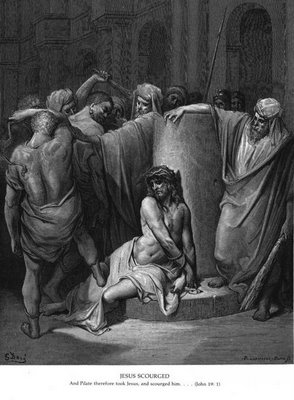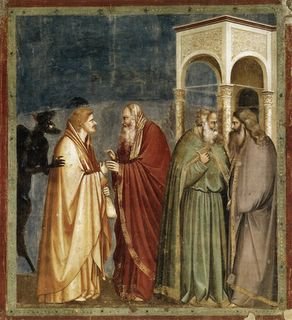
More Anti-Christian Programming
MTV has joined with Comedy Central, The New York Times, ABC News, and other media outlets in disparaging Christianity in general, and Catholicism in particular. MTV is planning to air a program in Germany called "Popetown". This animated series, was created by the BBC, yet was not aired by the BBC in Britain as it was deemed too offensive. It has previously been shown on TV only in New Zealand, and are also on DVD.
This series, will be shown to MTV viewers in Germany, Austria, and Switzerland, and is causing outrage among both German Catholics and Protestants. The series, starting May 3, depicts a fat, bratty figure as the pope, who bounces around the Vatican on a pogo stick, surrounded by corrupt cardinals. The cartoon's website, describes it as being set in a place "where money, power and corruption are the name of the game and everybody is playing".
"We call on all Christians in Germany to join our call that the series 'Popetown' should not be shown," the Central Committee of German Catholics said, calling it "an outrageous provocation".
The Central Committee of German Catholics was also outraged by an advertisement for the series which appeared just before Easter, that depicted a smiling Christ with a crown of thorns sitting in an armchair in front of an empty cross with the slogan, "Laugh instead of hanging around". The ad was pulled by MTV only after the German Advertising Standards issued a public rebuke and accused MTV of religious insensibility. MTV rejects that allegation and plans to to air the series as scheduled.
Tuesday Joachim Herrmann, a senior official with the Christian Social Union party said he has filed a complaint with prosecutors accusing MTV of disparaging Christianity. Hermann said it was inappropriate for MTV to run such magazine ads, and, "Ten days before Easter, it was a particular provocation."
The Catholic initiative "Never Again" is threatening legal action against MTV, and the Christian newspaper "Verse 1" has started a boycott campaign online (German language only). Evangelicals have joined the protest as well. Andreas Spaeth, chairman of the Association for Bible and Confession in Bavaria, is concerned that the media should be allowed to mock the Christian faith while treating Islam with great caution and consideration in similar circumstances. The Protestant Churches and the Roman Catholic Church each have close to 26 million members in Germany, nearly two thirds of the total population of 82 million.
The creators say despite its irreverence, the cartoon is not intended to offend anyone. Its website says: "Sure, it is a place where assembly lines flatten small balls of dough with mallets, transforming them into holy wafers. But 'Popetown' is not about the Vatican; it is about the hierarchy and bureaucracy in any company." Producer Alan Marke states, "religion never comes up at all in any of the scripts, we're just poking fun at any organization".
Not offensive to anyone? Any organization? Have these people been in a drawing room too long, lost touch with reality, or been smelling too much ink? That organization they are "poking fun at", is the one BILLION member Roman Catholic Church! I must say, that I have to agree with Mr. Spaeth, in his assessment that it is fine with the media to mock and belittle Christianity, while Islam is treated with kid gloves. Look at the New York Times for instance.
They made a big deal proclaiming how they would not publish the "offensive" cartoons depicting Mohammad that caused all the unrest around the world. Yet, in that very same issue, they published a picture of the Virgin Mary covered in elephant dung. The caption for the photo: Chris Ofili's "Holy Virgin Mary" was at the center of controversy when shown at the Brooklyn Museum in 1999. Yes, those brave, upstanding champions of freedom and particularly freedom of the press, don't want to offend anyone of the Islamic faith, but, hey, it's freedom of speech if they print photos that offended Christians from seven years ago.
Comedy Central has gone out of its way with South Park to offend Christians, yet they also see no offense. They have repeatedly said there was no offensive intent towards any group or individuals. How can a cartoon showing Jesus defecating on the American flag and President Bush, be deemed by anyone as inoffensive?
If our Christian leaders, placed a price on the heads of the creators of these programs, as was done to Salman Rushdie by such Islamic leaders as Ayatollah Ruhollah Khomeini, they would all go underground. If Christians strapped bombs to themselves, and began blowing themselves up in these companies headquarters and offices, they'd all get quiet in a hurry. We know though, and more importantly, they know, that we would never undertake such actions, because that would go entirely against Christianity and all it is. In other words, they are all a bunch of knee-banging cowards.
I think it is time we take another look at MTV, Comedy Central, The New York Times, and the rest of those companies that have no qualms against disparaging Christianity. Keep in mind, that in this age of "political correctness", that the only group that it is deemed acceptable to disparage, to demean, and to belittle, are Christians and the Christian faith. If Christians are shown as bumbling idiots on "The Simpsons", hey, that's OK...if The New York Times wants to publish photos of a feces covered Virgin Mary, that's just freedom of the press and freedom of speech...if ABC News wants to show a special on "The DaVinci Code" and present it as "fact" (someone failed to tell them it's a work of fiction, Elizabeth Vargas said, "it was fascinating to read it and think, "Wait a second, this can't possibly be true--or could this be?"), that's just "asking the tough questions".
Now, MTV is owned by Viacom, which also owns among others, VH-1, BET,CMT, and Comedy Central. We, should stand in solidarity with our Christian brothers and sisters, Protestant and Catholic in Germany, and make Viacom, MTV, and Comedy Central all well aware of our displeasure over their treatment and disrespect to Christians and the Christian faith. Call or email Viacom to express in a Christian manner your disgust with their companies treatment of Christians and the Christian faith. Click here for contact info for Viacom and MTV, and click here for Comedy Centrals viewer feedback form.
Catholic
Religion
Roman Catholic
Catholic Church
Christianity
Popetown


